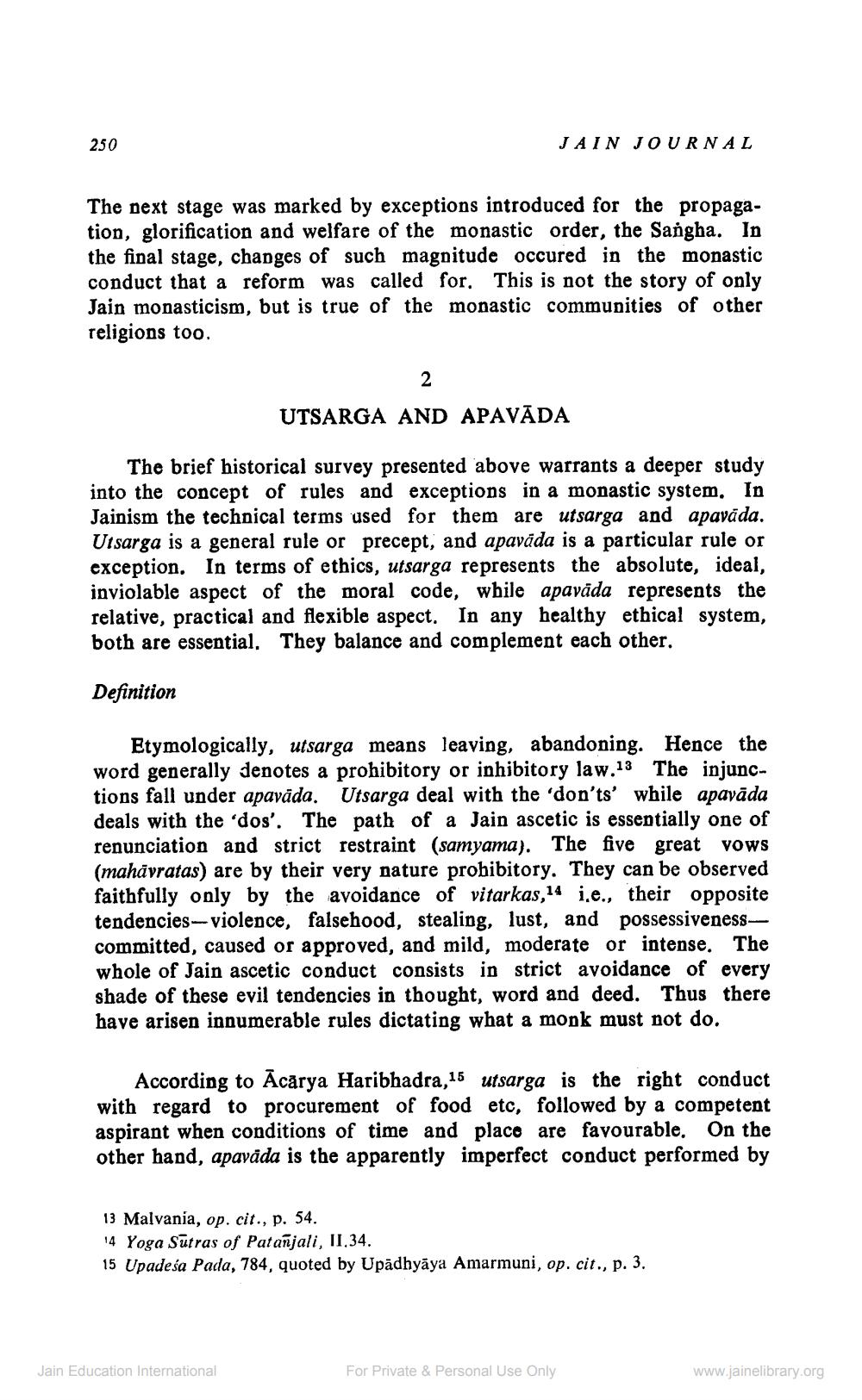________________
250
JAIN JOURNAL
The next stage was marked by exceptions introduced for the propagation, glorification and welfare of the monastic order, the Sangha. In the final stage, changes of such magnitude occured in the monastic conduct that a reform was called for. This is not the story of only Jain monasticism, but is true of the monastic communities of other religions too.
2 UTSARGA AND APAVĀDA
The brief historical survey presented above warrants a deeper study into the concept of rules and exceptions in a monastic system. In Jainism the technical terms used for them are utsarga and apavāda. Utsarga is a general rule or precept, and apavada is a particular rule or exception. In terms of ethics, utsarga represents the absolute, ideal, inviolable aspect of the moral code, while apavāda represents the relative, practical and flexible aspect. In any healthy ethical system, both are essential. They balance and complement each other.
Definition
Etymologically, utsarga means leaving, abandoning. Hence the word generally denotes a prohibitory or inhibitory law.13 The injunctions fall under apavāda. Utsarga deal with the 'don'ts' while apavāda deals with the 'dos'. The path of a Jain ascetic is essentially one of renunciation and strict restraint (samyama). The five great vows (mahāvratas) are by their very nature prohibitory. They can be observed faithfully only by the avoidance of vitarkas,14 i.e., their opposite tendencies-violence, falsehood, stealing, lust, and possessivenesscommitted, caused or approved, and mild, moderate or intense. The whole of Jain ascetic conduct consists in strict avoidance of every shade of these evil tendencies in thought, word and deed. Thus there have arisen innumerable rules dictating what a monk must not do.
According to Acarya Haribhadra,15 utsarga is the right conduct with regard to procurement of food etc, followed by a competent aspirant when conditions of time and place are favourable. On the other hand, apavada is the apparently imperfect conduct performed by
Jain Education International
13 Malvania, op. cit., p. 54.
14 Yoga Sutras of Patanjali, II.34.
15 Upadesa Pada, 784, quoted by Upadhyaya Amarmuni, op. cit., p. 3.
For Private & Personal Use Only
www.jainelibrary.org




